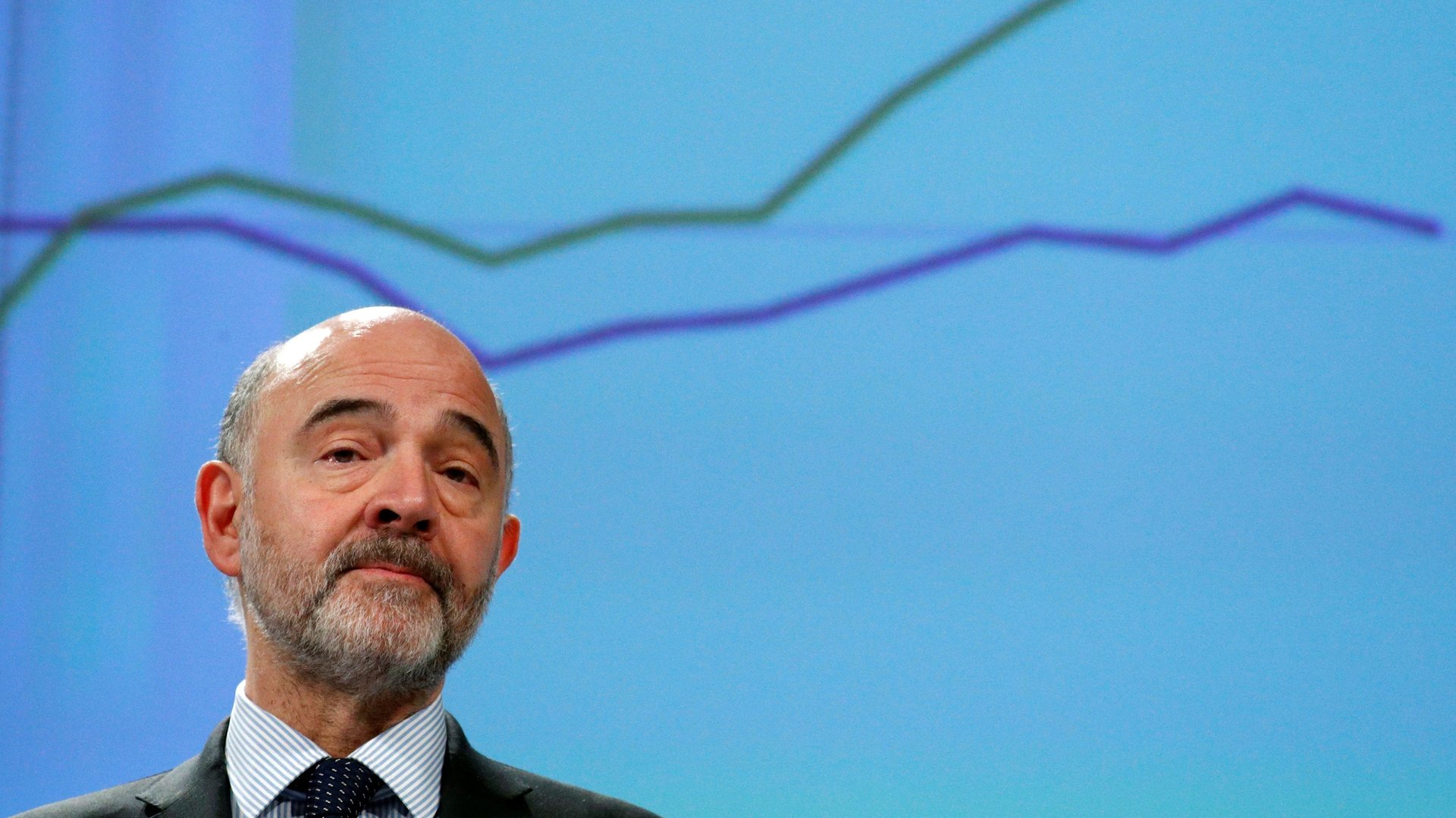The euro-zone economy is back on familiar ground—slow, grinding growth
The European Commission has confirmed its previous assessment that the euro-zone’s short-lived economic recovery is over. And how!


The European Commission has confirmed its previous assessment that the euro-zone’s short-lived economic recovery is over. And how!
The monetary union of 19 countries is back in a very familiar state of slow, uneven growth.
In its latest economic forecast, published today (Feb. 7), the Commission warns of significant slowdown in growth this year, tied to the poor economic performance of several major economies and rising global trade uncertainty. In its last projection, the Commission had predicted a 2019 growth rate of 1.9% across the euro zone. Today’s forecast revises that figure down to 1.3%—a significant dip. The 2020 estimate was also revised down, albeit less significantly, to 1.6% from 1.7%.
Overall, the Commission blames “lingering trade tensions” globally and an economic slowdown in China for dragging down growth.
While the European Union as a whole is expected to grow for the seventh consecutive year, the fastest growth will take place in smaller economies like Malta and Cyprus.
Italy, whose economy recently fell into a recession, stood out as the slowest euro zone economy, with the Commission describing its economic activity as “anemic.” The country’s economy had performed poorly since early 2018, but as today’s forecast notes, “While the initial slowdown was largely due to less dynamic world trade, the recent slackening of economic activity is more attributable to sluggish domestic demand, particularly investment, as uncertainty related to the government’s policy stance and rising financing costs took its toll.”
The toll was visible in the difference between the Commission’s 2018 and 2019 forecasts for the country. In Autumn 2018, it predicted a real GDP growth rate of 1.1% for that year. It has revised that number down to 0.2% for 2019.
Another country that stood out in the forecast was Germany. Traditionally one of the euro zone’s strongest economies, Germany experienced an economic slowdown in 2018 that is still ongoing due to “weakening export growth and growing consumer restraint.” The country had a real GDP growth rate of 1.5% in 2018, and the Commission had predicted a 1.8% growth rate for Germany this year. But the latest forecast revises that growth rate down to 1.1% for the year ahead, with a rebound to 1.7% in 2020.
The forecast also predicted a more modest slowdown in growth in France, Spain, and The Netherlands.